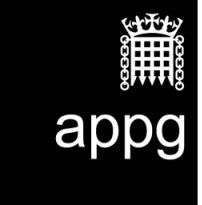The UK’s all-party parliamentary group (APPG) for challenger banks and building societies has outlined how new reforms in the financial services sector could support the government’s levelling-up agenda.

The APPG calls for a financial services “big bang”
The challenger banking APPG has made five recommendations, most notably calling for a new “big bang” in financial services to break up the dominance of the UK’s big five banks, which it says remain “insulated from the forces of competition”.
It also wants to cut regulations that choke innovation, enhance open banking and FSCS protections, match regulatory thresholds with international competitors and boost financial education.
The group’s chair Karen Bradley MP says financial services can play a “big role” in the government’s levelling-up agenda and the ongoing cost-of-living crisis, “but overly cautious regulation is holding them back”.
Bradley adds the APPG’s recommendations are “easy to implement within the current Financial Services Bill, are cost-neutral, and have the potential to deliver real and lasting change to communities across the UK”.
The group says the government should utilise its Financial Services and Markets Bill “to drive fundamental change” in the UK’s financial sector.
The current regulatory regime holds back challenger banks and stifles competition, the group says, and an “obsession” with averting failure has led to an uneven playing field for challengers and big banks.
One regulatory hurdle the group highlights is the MREL threshold – the minimum amount of equity and debt a firm must maintain – which is set lower in the UK than elsewhere in the world and disincentives growth and innovation.
“How can challenger institutions here compete with a £15 billion threshold when in other jurisdictions such as the EU the threshold is €100 billion and the United States $250 billion?” the group asks.
Metro Bank CEO Dan Frumkin says: “If done right, channelling fresh investment, finance, and opportunity will change the fortunes of whole communities.
“Challenger banks and building societies, including community banks like Metro Bank, stand ready to play a significant role in this – yet our potential continues to be held back because rules and regulations aimed at de-risking the UK’s biggest banks actually prevent challengers from growing and shaking up banking for the better.”
Regulators should redesign the regulatory landscape, the group says, to support the growth and development of new building societies and regional and community-focused banks as seen in the US.
A lack of competition means poorer availability of lending outside London and the South East, “which acts as a significant brake on levelling-up the economy”.
The APPG adds capital rules for firms headquartered or operating in levelling-up areas should be removed so that it is easier to start and grow firms outside London and the South East.
Additionally, it recommends the government should level-up the banking sector by forcing banks to offer branches to challengers before closing them as well as financial incentives for challengers to open new ones especially where there are no other bank branches currently.
The group also wants to boost the fintech sector through enhancing the open banking model and FSCS-style protection for those investing in regulated fintech institutions.
The booming fintech sector has highlighted the flaws in the open banking model, the group says, and steps should be taken to allow open banking to offer a holistic view of an individual’s financial circumstances.
It adds financial literacy in schools and universities should also be improved, and financial education should become part of the curriculum at primary and secondary schools.
“For a nation that prides itself on being a global hub of financial services, the lack of universal financial education in schools is embarrassing,” the group says.
Credit: Source link


Comments are closed.